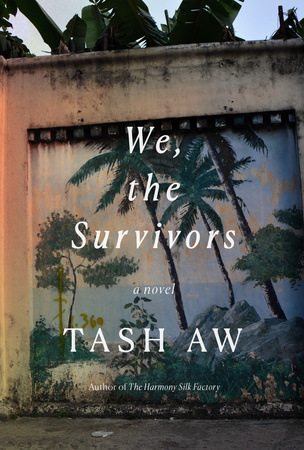 |
We, the Survivors by Tash Aw Book Group 1 – October 2020
In his latest novel, We, the Survivors, Tash Aw brings his readers full circle, back to Malaysia, which was the setting for his first novel, The Harmony Silk Factory. Lee Hock Lye, the central character, has committed a murder, which we learn on the second page. So as readers we know the outcome of the story from the very beginning. However the desire to find out the how, the who, the where, the what, the where, the why and all the details that led to the horrendous outcome grip us, carrying us through to the end. Ah Hock grew up in Kampong Sungai Bagan Yu, a rural fishing village near Kuala Selangor on Malaysia’s west coast, his mother struggling to support them. School held no attraction for him and he soon made his way to KL in search of a future. In drifting from one menial job to another, Ah Hock experiences life at the edges of society. Aw weaves Keong, Ah Hock’s closest friend from his past, in and out of the narrative, who is both a help and a hindrance to him. Their relationship seems to be built on the precept that you would do anything for a friend, which makes it hard for Ah Hock to disentangle himself from his friend’s influence. Eventually Ah Hock establishes himself in a steady job at a fish farm at Kuala Selangor rising to an essential position in which he is responsible for many migrant workers. Several workers become sick at once forcing Ah Hock to look for replacements urgently, causing him to turn to Keong for help. The desperate search for workers brings him into close contact with the world of migrant labourers, leading to his undoing. |
|
|
Although not a page turner we found the narrative engaging, partly because we learned so much about Ah Hock and his roots that we identified with him. The format of having the story unfold through chapters alternating between Ah Hock’s recollections and the thoughts of his interviewer, Su Min, a researcher studying his situation gave us further insight into his psyche. We felt she functioned as a foil for him to create a contrast with all the things he wasn’t, a city resident, educated, a free thinker, financially independent. Aw brings our attention to the plight of migrant workers in Malaysia portraying their situation sympathetically. Although many unpleasant details arise, we didn’t feel Aw revealed anything about the Malaysian situation that we didn’t already know. As a character, Ah Hock, seems unable to rise above his socio-economic position in spite of striving to create a new life for himself. His mother, whom we felt was his greatest influence, instilled the value of hard work, which only carried him so far in his upward striving. Who or what was responsible for his ultimate failure? We felt it was almost a perfect storm of factors that coalesced against him creating a situation in which he was unable to take control. He ends up a broken man who seems to find solace in a church group that shows him kindness, showing him a new way to interact with the world around him.
Leslie Muri |
||




